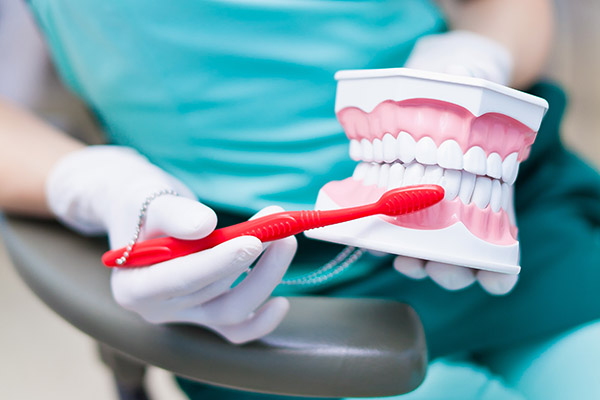What Happens After Root Canal Therapy

A root canal is typically the best choice to relieve pain, preserve the tooth, and restore function when inflammation or infection in the fragile inner pulp of a tooth occurs. The dentist will do their best to offer a pain-free root canal operation, ensuring that you are comfortable and calm during the process. So, the only thing that you need to be concerned about is the pain of dental decay.
After a root canal
After the root canal treatment, patients will need to make another dental appointment to complete the tooth repair. With proper care, a repaired tooth may survive as long as a natural tooth. Root canal treatment can weaken, brittle, and fracture the affected tooth. To help strengthen the weak tooth, the dentist may offer one or more of the following options.
Placement of the crown
Root canal treatment can weaken the tooth's structure and make it more prone to damage. To help strengthen it, the dentist may recommend crown placement. Patients will need one immediately if the tooth had no crown before the root canal. Removing the nerve and blood supply during a root canal procedure leaves the tooth dry and brittle. The tooth can be held together with a dental crown, which adds strength and endurance. A dental crown is an essential part of a repaired tooth's structure, ensuring its long-term viability.
The dentist makes the crown by taking impressions of the affected tooth. Pending the production of the new crown, patients will get a temporary crown to protect the tooth.
Permanent filling
The dentist will likely cut a small hole through the crown to conduct root canal treatment on a tooth that already has a crown. The dentist might fill the crown with a tooth-colored filling afterward. Patients can have a strong, natural-looking smile with composite resin fillings.
Taking good care of the teeth
In addition to aiding in the healing of root canal-treated teeth, maintaining healthy oral hygiene may help prevent more treatments in the future and safeguard other teeth against infection. Brushing and flossing the teeth at least twice a day may go a long way toward improving one's oral health. However, brushing and flossing should be done with care, so as not to irritate the affected area or upset the temporary fillings. It is also a good idea to plan regular dental checks and cleanings.
Follow the dentist's instructions
It is advisable to follow the dentist's specific recommendations to ensure a quick and painless recovery. Here is what to anticipate.
Minor pain
A root canal is a dental operation that involves the removal of dead or decayed tissue from a tooth. The region is subsequently cleaned and disinfected to eradicate all indications of infection. It is normal to suffer sensitivity, swelling, and pain following the procedure, which may last anywhere from a few days to a few weeks.
The local anesthetic administered at the beginning of the procedure should last for hours. When it wears off, tenderness or soreness might occur. Over-the-counter pain medications, such as acetaminophen or ibuprofen, may be used as a treatment.
Patients concerned about their pain threshold should speak with the dentist about medication choices. Prescription antibiotics may be required if the discomfort increases, since infection may be present.
Care for the temporary fillings and crowns
Patients may need to come back for a permanent filling or crown in certain circumstances. In that case, a temporary crown will be placed to safeguard the tooth and prevent additional harm. It is usually preferable to not chew or drink hot liquids until the anesthesia wears off, to avoid accidentally biting the lips or tongue. After the procedure, it is better to stick to soft meals for a few days.
Avoid hard or sticky foods while wearing a temporary crown to prevent the protective fixture from cracking, breaking, or coming loose, exposing the affected tooth. Chew on a different side of the mouth whenever feasible. Once the final filling or crown is set, the patient may brush and floss as usual.
In conclusion
In most cases, you can return for a follow-up appointment for a permanent filling or crown without difficulty or complications. But if you are experiencing significant discomfort, it might signify an infection. Please contact the dental office as soon as possible to address any concerns following the root canal. If your temporary crown breaks or comes loose, you should reach out immediately.
Request an appointment here: https://www.alluredentalchicago.com or call Allure Dental at 3122487517 for an appointment in our Chicago office.
Check out what others are saying about our dental services on Yelp: Root Canal Treatment in Chicago, IL.
Recent Posts
Finding out that you need a root canal can be terrifying. This procedure has always been seen in a negative way. In truth, this treatment can restore your dental health. Here are the details on how a root canal can prevent tooth loss.The dentist will remove the inflamed or infected pulp material from its chamber.…
Have you been told by your dentist that you need a root canal? Read on to learn about the importance of getting this treatment in a timely manner. There is no good reason to delay getting a root canal. Still, many people end up doing just that due to reasons like a fear of dentists…
Are you preparing yourself for your upcoming root canal treatment? Good idea. When you are ready, the entire root canal process is one that will be much simpler for you. Since one of your teeth is in jeopardy, it is vital for you to take any measures so that you can save the tooth. Keeping…
A root canal procedure can induce a lot of dental anxiety. Although the procedure is meant to improve oral health, a lot of people avoid it due to fear of pain or discomfort. However, it is important to know there are ways to overcome those fears.Feeling anxious regarding an upcoming root canal procedure? In this…


